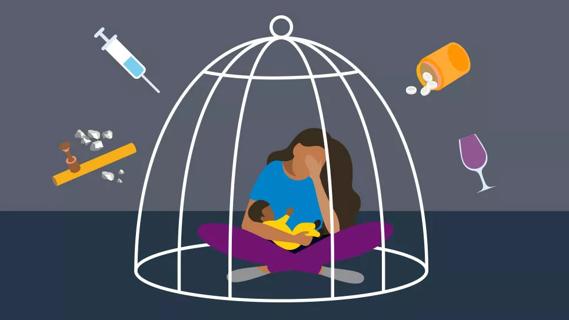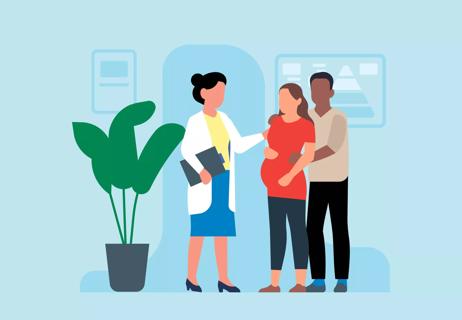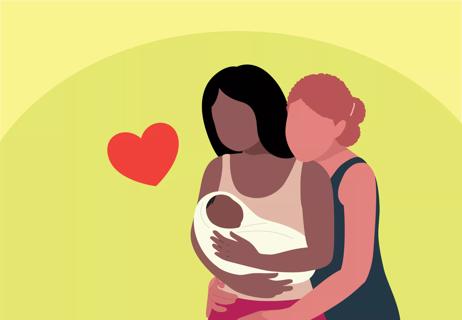Breaking through emotional pain, stigma

Having a miscarriage is a painful and heartbreaking experience. And you may also find that it’s isolating, as well. Although miscarriage is relatively common, many women feel a stigma that can make recovery even more difficult. But you don’t have to let that happen.
Advertisement
Cleveland Clinic is a non-profit academic medical center. Advertising on our site helps support our mission. We do not endorse non-Cleveland Clinic products or services. Policy
Although about 15 to 20% of pregnancies end in miscarriage, the experience is one that many aren’t comfortable sharing.
“A lot of women don’t talk to each other about it,” says Ob/Gyn Rebecca Bagley, MD.
But when one woman breaks the silence, others often feel relief at having the chance to tell their own stories.
“A lot of women come back to me after a miscarriage and say, ‘I can’t believe how many of my friends and family members have also gone through this. They never talked to me about it,’” Dr. Bagley says. “When more women share their experiences, they realize that they’re truly not alone.”
Some women struggle with a sense of shame after a miscarriage; they might feel like there’s something wrong with them or they may blame themselves as though they could have prevented it somehow.
“I always make a point of telling my patients, ‘This is not your fault; this is not something you did,’” Dr. Bagley says. “This is important for women to know.”
There are known risk factors, such as smoking cigarettes, and alcohol and drug use. But she says that most miscarriages happen due to a chromosomal problem when the egg and sperm meet.
Dr. Bagley encourages women who have miscarriages to reach out to others, whether it’s to friends and family or in a pregnancy loss support group.
Advertisement
“Often with miscarriage, there’s not a lot of closure,” she says. Participating in a support group or seeing a therapist can help you and your partner process your grief.
It’s also important to remember that having one miscarriage — or even several — doesn’t mean that having a baby is impossible for you.
Most women who experience miscarriage go on to have healthy, full-term pregnancies. And having one miscarriage doesn’t increase your risk of having another, Dr. Bagley says.
Although miscarriage is a sensitive and often painful topic, bringing it out of the shadows can help you get the support you need to deal with this difficult — but very common — aspect of pregnancy.
Advertisement

Sign up for our Health Essentials emails for expert guidance on nutrition, fitness, sleep, skin care and more.
Learn more about our editorial process.
Advertisement

Vaginal bleeding, cramping and a decrease in pregnancy symptoms can be signs — but can have other causes, too

Lifestyle changes can help, but you may also need medication

Adults are often asymptomatic, but this bacteria can seriously harm newborns

These medications can increase fertility — but the risk of taking them while pregnant isn’t well known

Obesity, age and preexisting heart conditions can all raise your risk of cardiovascular disease during pregnancy

Neonatal opioid withdrawal syndrome, or NOWS, can develop when a fetus is exposed to opioids, nonmedical drugs or even some prescription drugs during pregnancy

If left untreated, you risk complications, early labor and passing the infection to your baby

Having a baby after a loss can bring unexpected emotions

Even small moments of time outdoors can help reduce stress, boost mood and restore a sense of calm

A correct prescription helps your eyes see clearly — but as natural changes occur, you may need stronger or different eyeglasses

Both are medical emergencies, but they are very distinct events with different causes